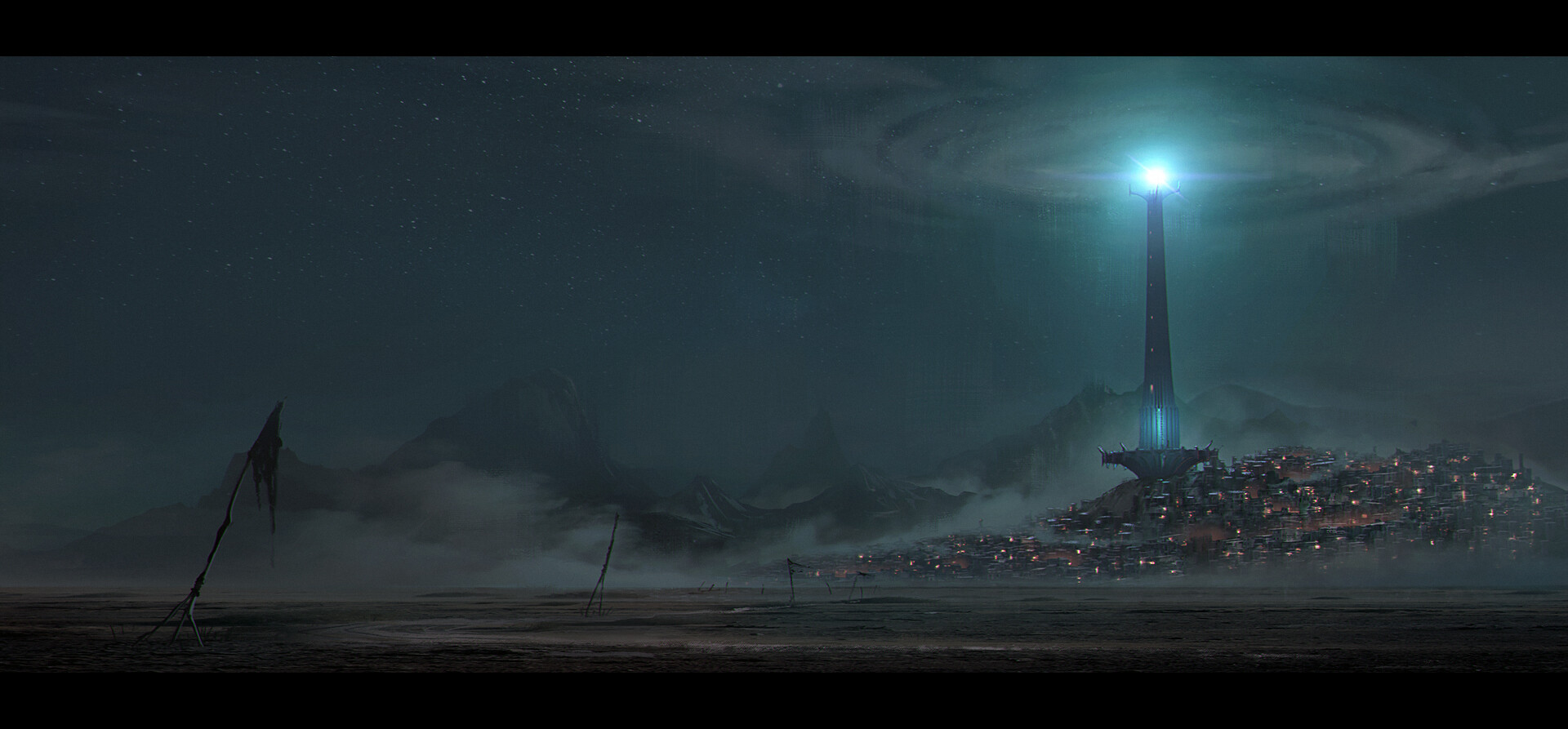 |
| Like this, but a little taller. Credit Maksym Harahulin |
When you see it come over the horizon, you can't help but rub yours eyes. It looks a little like having an eyelash slowly drop down into your eye, but no matter what you do, it doesn't go away. It stretches up to the clouds and beyond, a flaw in the sky, an error in reality, an impossible structure that should collapse like a castle made of cards stacked end-to-end.
But it endures. Cannon has been brought to bear against it, once. Just once.
The nobles hate it. Peasants will drop tools and wander over from a town across, and flood in through whichever snarling visage the gate presents itself as that day. A couple come out bearing obscure trinkets or bizarre pieces of furniture. Some come out scarred and torn, missing limbs, missing memories. Most don't come out at all.
The rules:
- Each room contains a small golden key and a wooden door.
- Touching the key to the door causes both to be destroyed, and the stairs upwards revealed.
- Both key and door are immune to all spells, and breaking the door reveals only solid rock.
- Each room will have a number of "elements", preventing easy access to either the key, the door, or other important items. These aren't puzzles, just irritating obstacles, usually dangerous, potentially lethal.
- The number of elements in each room starts at two, and increases every 1d6 floors.
- The key will usually be visible, but not always. There will usually be enough light to see by, but not always.
- Enemies cannot move more than one room away from their starting location, unless they have your express permission.
- The tower and everything in it resets each visit.
- A few items are specifically "loot" items, you will be told if this is the case.
- Everything else is "furniture", and will crumble to ash when removed from the tower, excepting one single chosen item.
- "Furniture" especially includes trap components, enemies, recruited allies, corpses and chunks of wall.
- Speaking your true name has palpable force equivalent to the highest floor you have reached.
I like this idea. The more I get into roguelike videogames, the more the idea of these kinds of game-y, rapid-fire random dungeons appeal to me. I also think it's interesting that several roguelikes attempt to contain some sort of ludo-narrative connecting the repetition of game lives/sessions into a time- or generational-based story. I think something like that could probably be explored better (or at least more directly) in a TTRPG.
ReplyDeleteYou've got a very good point here. I've actually been working on a roguelike-ish system with simple scaling core abilities and loot-based progression, I think it would make a good pairing with this
DeleteThis comment has been removed by a blog administrator.
ReplyDeleteThis comment has been removed by a blog administrator.
ReplyDeleteThis comment has been removed by a blog administrator.
ReplyDeleteThis comment has been removed by a blog administrator.
ReplyDeleteThis comment has been removed by a blog administrator.
ReplyDeleteThis comment has been removed by a blog administrator.
ReplyDeleteThis comment has been removed by a blog administrator.
ReplyDeleteThis comment has been removed by a blog administrator.
ReplyDeleteThis comment has been removed by a blog administrator.
ReplyDeleteThis comment has been removed by a blog administrator.
ReplyDelete